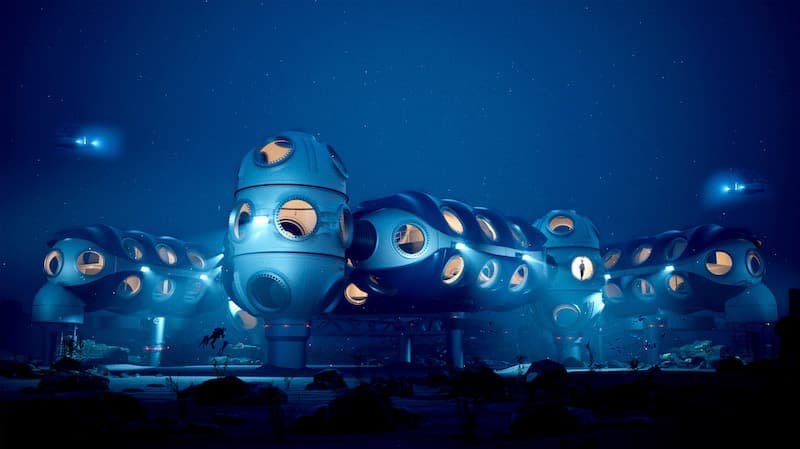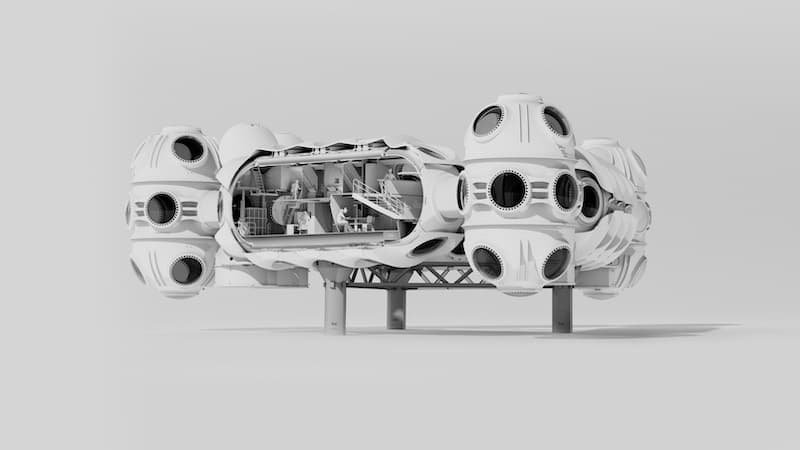
 Olivia Møller
Freediver - Activist - Explorer
Olivia Møller
Freediver - Activist - Explorer

 Olivia Møller
Freediver - Activist - Explorer
Olivia Møller
Freediver - Activist - Explorer
DEEP, the pioneering ocean technology and exploration company, dedicated to the mission of 'Empowering Humans in Aquatic Environments,' has announced an ambitious goal of establishing a permanent human presence beneath the oceans by 2027. Is that doable?
Steve Etherton, President, EMEA of DEEP, emphasized the significance of ocean preservation and comprehension. He underscored the central role oceans play in addressing global challenges and unlocking untapped opportunities. Despite their vital importance, oceans remain relatively enigmatic. DEEP's cutting-edge technology aims to empower scientists to conduct comprehensive research for extended periods, contributing significantly to our understanding of this essential ecosystem.

DEEP's holistic system comprises Sentinel, an advanced underwater habitat, a revolutionary range of submersibles, diving equipment, and state-of-the-art scientific research tools. This comprehensive offering is further complemented by technical and human performance training programs provided through the DEEP Institute. DEEP also operates a unique underwater Research and Development (R&D) test and operations facility known as DEEP Campus.
The Sentinel, classified globally by DNV, is designed to enable scientists to reside underwater at depths of up to 200 meters for extended periods, reaching a remarkable 28 days at a time. This extended access opens up the majority of the world's continental shelves, providing unprecedented opportunities for studying the Epipelagic zone, which hosts approximately 90% of marine life. This represents a monumental leap forward in ocean exploration, moving beyond surface-level incursions. DEEP's commitment to innovation is evident through two years of pioneering research in manufacturing processes and materials science. They have now reached an advanced stage of technical design and initiated production. DEEP's habitat is designed to be modular, scalable, autonomous, recoverable, re-configurable, and re-deployable, offering a more effective and sustainable way to live and work underwater compared to traditional fixed-location facilities.

Sean Wolpert, President, Americas of DEEP, emphasized the urgency of gaining a better understanding of the oceans. DEEP is emerging from stealth mode and actively seeking international partners who recognize the immense potential for humanity in preserving and harnessing the oceans for various purposes, including pharmaceutical research, carbon capture, and innovative medicines. DEEP strategically chose the South West and Wales in the UK as their initial base due to the region's unique concentration of marine engineering, diving, hyperbaric, and submersible expertise. This location provides a solid foundation for establishing a new industrial and scientific ecosystem. Mike Shackleford, President, Global Services of DEEP, highlighted their significant investments in advanced manufacturing processes and the development of a cutting-edge fabrication facility with a focus on sustainability. DEEP Campus, situated at the former National Dive & Activity Centre, will become a world-leading controlled water facility for training, testing, and research, further strengthening the regional ecosystem and facilitating collaboration with partners on various levels.